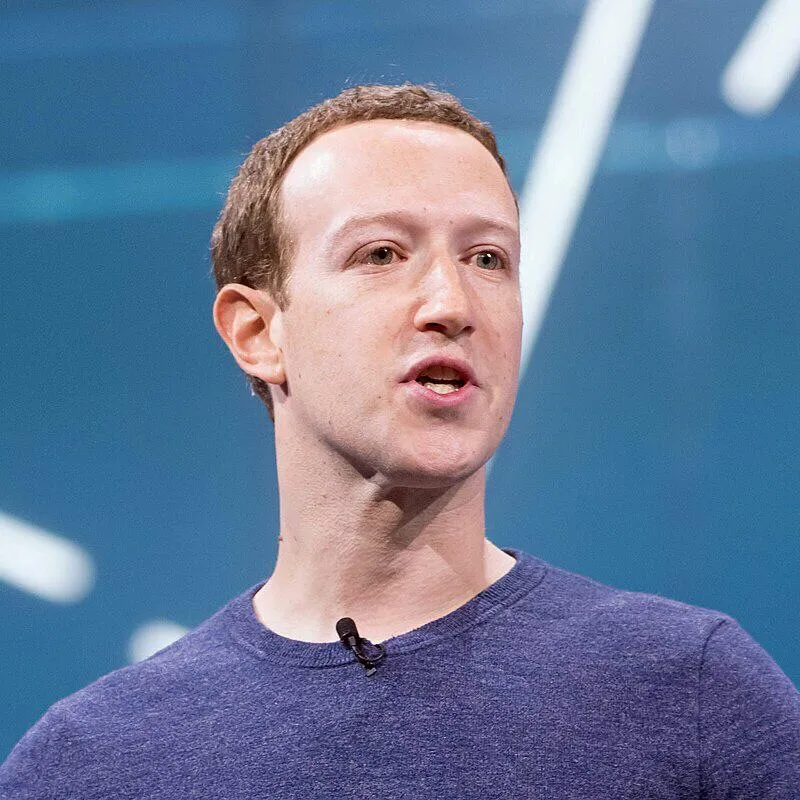Mark Zuckerberg, the co-founder and CEO of Facebook, is one of the most influential and iconic figures in the tech industry. His journey from a college dorm room to building the world’s largest social media platform has become a modern-day success story, reshaping the way people connect, communicate, and share information globally.
1. Humble Beginnings
Mark Zuckerberg was born on May 14, 1984, in White Plains, New York. From an early age, he demonstrated a keen interest in computers and programming. He developed his first software programs while still in middle school and continued to hone his skills throughout high school.
After graduating from high school, Zuckerberg enrolled at Harvard University, where he studied computer science and psychology. It was during his time at Harvard that he embarked on the journey that would change the course of his life and the trajectory of social media forever.
2. The Birth of Facebook
In February 2004, while still a sophomore at Harvard, Mark Zuckerberg launched “The Facebook” from his dorm room along with his college roommates, Eduardo Saverin, Andrew McCollum, Dustin Moskovitz, and Chris Hughes. Initially conceived as a social networking platform exclusively for Harvard students, the website quickly gained popularity and expanded to other Ivy League universities and eventually to colleges and universities across the United States and beyond.
The success of Facebook can be attributed to its simplicity, user-friendly interface, and focus on connecting people. With features such as profiles, news feeds, and photo sharing, Facebook revolutionized the way people interacted online, fostering a sense of community and enabling users to stay connected with friends, family, and acquaintances irrespective of geographical boundaries.
3. Scaling the Empire
As Facebook’s user base continued to grow exponentially, Mark Zuckerberg and his team focused on scaling the platform and introducing new features to enhance user experience. In 2006, Facebook opened its doors to the general public, allowing anyone with a valid email address to sign up for an account. This move catapulted Facebook into the mainstream and laid the foundation for its global dominance in the social media landscape.
Over the years, Facebook expanded its offerings through strategic acquisitions, including Instagram in 2012 and WhatsApp in 2014, further solidifying its position as a leader in the tech industry. Under Zuckerberg’s leadership, Facebook evolved from a social networking platform into a multi-faceted tech conglomerate, offering a suite of products and services designed to connect people, facilitate communication, and drive innovation.
4. Challenges and Growth
Despite its unprecedented success, Facebook has faced its fair share of challenges, including concerns about privacy, data security, and the spread of misinformation. Mark Zuckerberg has navigated these challenges with resilience and determination, implementing measures to safeguard user data, combat fake news, and promote transparency and accountability within the company.
Under Zuckerberg’s leadership, Facebook has continued to innovate and adapt to changing market dynamics, launching new features and initiatives to keep pace with evolving user preferences and technological advancements. From virtual reality and augmented reality to artificial intelligence and cryptocurrency, Facebook is at the forefront of driving innovation and shaping the future of technology.
5. Philanthropy and Social Impact
In addition to his work in the tech industry, Mark Zuckerberg is also known for his philanthropic efforts and commitment to social causes. In 2015, he and his wife, Priscilla Chan, launched the Chan Zuckerberg Initiative, a philanthropic organization dedicated to advancing human potential and promoting equality. Through the initiative, Zuckerberg has pledged to donate the majority of his wealth over his lifetime to address pressing issues such as education, healthcare, and scientific research.
6. Legacy and Influence
Mark Zuckerberg’s success story serves as an inspiration to aspiring entrepreneurs and innovators around the world. His visionary leadership, relentless pursuit of excellence, and commitment to making a positive impact have earned him widespread admiration and respect. As the architect of social connectivity, Zuckerberg has redefined the way people connect and communicate in the digital age, leaving an indelible mark on the fabric of society.
In conclusion, Mark Zuckerberg’s journey from a college dropout to the CEO of one of the world’s most influential companies is a testament to the power of ambition, innovation, and perseverance. As he continues to shape the future of technology and philanthropy, Zuckerberg’s legacy will endure as a beacon of inspiration for generations to come, reaffirming the transformative potential of entrepreneurship and social impact.





